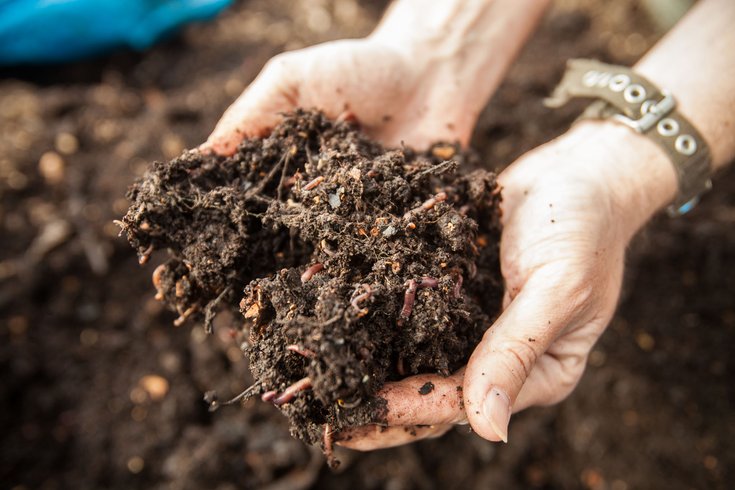
February 19, 2024
 Thom Carroll/for PhillyVoice
Thom Carroll/for PhillyVoice
Philadelphia's community composting network is one of the only free compost options in the city. After years of setbacks, it's adding 12 more sites at community gardens, schools and urban farms.
Five years ago, Philadelphia started a new program that would give residents the chance to sort, shift and transform organic waste into compost.
Based on similar initiatives in cities like Washington, D.C., the community composting network was designed to provide select community gardens, urban farms and schools with the structures and tools to break down old leaves and kitchen scraps. After receiving nearly two dozen applications, park officials selected 13 sites for "cohort one," the first class of community composters, and began training.
Then, the pandemic hit.
As COVID-19 spread across the city and drove residents indoors, the bins were placed on the backburner. The sites slowly came online later in 2020 and early 2021 as the worst of the outbreak subsided. Some setbacks arose. Rats invaded the compost heaps, volunteers got burnt out and one site left the network amid financial and labor crises. But now, cohort one has been up and running for years — and it's ready to help train the next generation.
"We are gearing up to release a new application to all residents across the city to fill in 12 slots that we have," Ash Richards, director of urban agriculture for Parks & Recreation, said. "The hope is to have it out by the summer.
"And the hope is a strong, bold hope."
After so many starts and stops, Richards is working hard to manage expectations. The network, they said, is really a small-scale operation compared to the city's other composting initiatives. Parks & Recreation more recently entered a partnership with Bennett Compost, one of the city's two major private collectors, to compost food scraps from Philadelphia rec centers. Though it hasn't scaled to every center, it's already saved 17,975 pounds of organic waste from the dump. Leaves and other debris from trees across the city are also diverted to the Fairmount Organic Recycling Center, which provides free compost and mulch to residents.
Neither of these operations, however, provides the hands-on experience of the community composting network. Though each site has its own rules, half are open to members of the garden or school. Three — Liberty Lands, 8th & Poplar Farm and Pearl Street Garden — are open for public drop-off, making them virtually the only free composting options in Philadelphia. Residents can also drop small collections at the lone Mom's Organic Market in Center City, or else do it themselves in the backyard.
The DIY nature of the community compost network cuts both ways. While it gives green thumbs the chance to run their own compost sites with tools and guidance, no one is getting paid, and the work can quickly overwhelm. A compost pile requires frequent rotation and monitoring for temperature and moisture, as well as the right ratio of nitrogen-rich "greens" (i.e. grass clippings and vegetable peels) to carbon-dense "browns" (such as leaves or egg cartons).
It's also not work for the squeamish, since critters will move into the soil as the scraps break down. Bugs such as cockroaches are merely gross, not harmful. But mice, which racked up contracting fees on at least one bin, are.
"We have two schools, so sometimes staff would leave and it would be really difficult to get people back on board," Richards said. "Some of the sites experienced turnover and just, I think, exhaustion.
"As a program manager, I realized we need to really understand what else do people need for support to keep these sites running. And because this is a public program, that means we have to be responsible and accountable for managing this as a program that's gonna be in perpetuity."
Some of that support will be more of the same: repairing old bins, buying materials for new ones and training up the latest recruits. But Richards also hopes to provide more opportunities for volunteers to mingle and share information. Cohort one got the chance to do that at a barbecue last year. Once cohort two comes aboard, Richards will plan another for both groups and help build a system for volunteers to keep in touch.
"We're all working really hard, and my hope is that we can keep giving them the support and resources they need to do this, and also help the city realize how important this work is," Richards said. "A lot of times we're doing a lot with a little, but we still have to make meaningful programs with that little bit."
Follow Kristin & PhillyVoice on Twitter: @kristin_hunt
| @thePhillyVoice
Like us on Facebook: PhillyVoice
Have a news tip? Let us know.